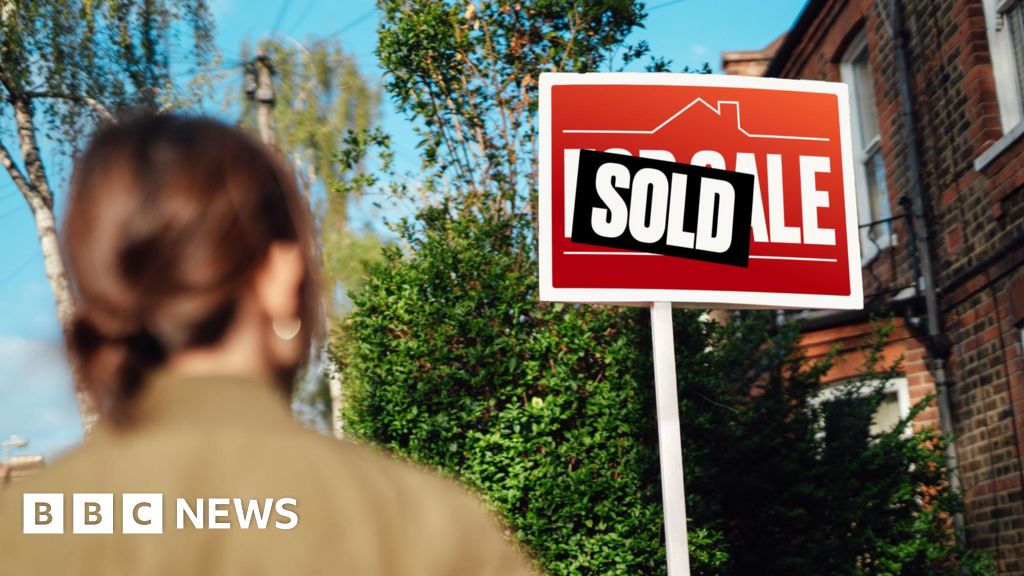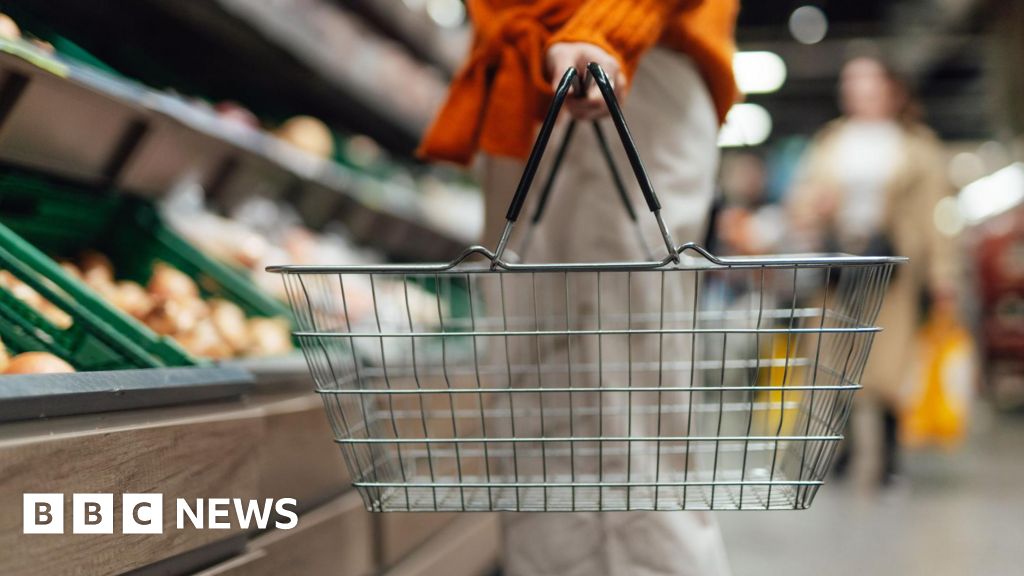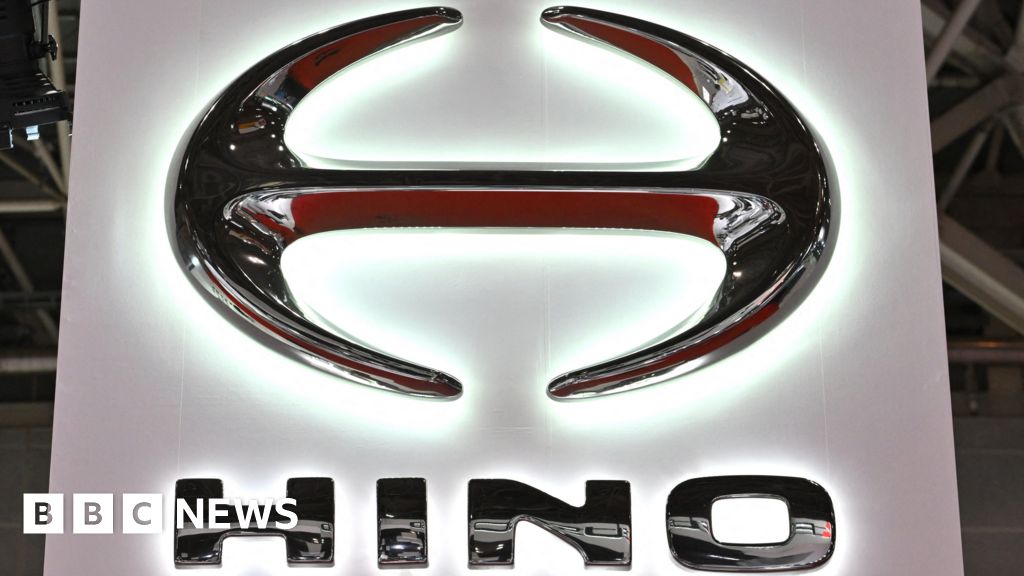ARTICLE AD BOX
By Lucy Hooker
Business reporter, New York
Watch drone footage of the Amazon warehouse in Illinois after its roof collapsed
Amazon is facing questions over health and safety policies at a warehouse in the US state of Illinois after six workers died when the building was destroyed by a tornado.
"This never would have happened if they cared about lives over productivity," the sister of one of the victims commented on social media.
The company says its team had "worked quickly" in response to the tornado.
The roof collapsed as the storm hit the warehouse on Friday.
Kelly Nantel, an Amazon spokesperson said in a statement the company is "deeply saddened" by the deaths.
One of those who died, Clayton Cope, 29, spoke to his family on the phone shortly before the building in the town of Edwardsville, Illinois was struck.
Clayton's mother Carla, said she had called her son to warn him of the tornado's approach.
"We told him it looked like the storm was heading that way and that he needed to get to shelter," Carla told NBC affiliated television station KSDK.
Clayton, who had previously trained in the Navy, told his mother he would first warn his co-workers.
Image source, Cope family
Image caption,Clayton Cope told his family he wanted to warn other workers before seeking shelter himself
Now, questions are being raised over whether adequate shelter was available, whether workers were advised to go there immediately, and whether the shifts should have gone ahead that evening at all, given the warnings of severe weather.
The Edwardsville site received tornado warnings between 20:06 and 20:16 local time (01:06 and 01:16 GMT) before the tornado struck the building at 20:27, Amazon said in a statement when contacted by the BBC, with events "happening incredibly fast".
The company said that the team worked "incredibly quickly" to ensure as many employees and partners could reach the "shelter in place" site.
One cargo driver, Austin J McEwen, 26, died in the bathroom, where many workers said they had been directed to shelter after receiving emergency alerts on their mobile phones.
"I was just getting in the building and they started screaming, "Shelter in place!'" said David Kosiak, 26, who has worked at the facility for three months. "We were in the bathrooms. That's where they sent us."
"It sounded like a train came through the building. The ceiling tiles came flying down. It was very loud. They made us shelter in place 'til we left - it was at least two-and-a-half hours in there," Mr Kosiak said.
Amazon said following a tornado warning company procedure was for all employees to be "notified and directed to move to a designated and marked shelter in place location".
The majority of the team had taken shelter at "the primary designated location", the firm said, but a small group had taken shelter in a part of the building that was hit by the tornado. "This is where most of the tragic loss of life occurred," Amazon said.
But Clayton's sister Rachel told the BBC that she understood from the conversation between her brother and her parents that he and the other workers were not immediately told to shelter after the first warning siren sounded.
She posted an comment on Facebook calling for publicity around the firm's approach to health and safety.
"Everyone knows that all Amazon cares about is productivity," she wrote.
She said she didn't believe her brother would have died if the company "got them [the employees] to safety after the storm started to get bad and took it seriously".
"No-one would have been frantically getting to the shelter last minute and my brother wouldn't have had to help people get to the shelter and put his life at risk," she wrote.
"I want them to answer for this, I want this to be a starting point of places taking the lives of their employees seriously and treating them as more than a number."
The deadly storms swept through six US states on Friday evening causing the deaths of almost 100 people and damaging homes and businesses over a 200 mile (322 km) area. In Mayfield, Kentucky eight deaths were confirmed at a candle factory.
The National Weather Service said the storm had intensified rapidly as it struck the Amazon warehouse with winds peaking at 150 miles per hour (241 km-per-hour), ripping the roof off the football field-sized structure. The 11-inch (28-cm) thick concrete walls fell in on themselves.
Stuart Appelbaum, president of the Retail, Wholesale and Department Store Union, which is trying to unionise Amazon workers in different parts of the US, said it was "inexcusable" that the company required people to work despite the tornado warning.
On Monday, US Department of Labor said an investigation into the building collapse has been opened by the US Occupational Safety and Health Administration.
Image source, Getty Images
Image caption,The roof of the building buckled as the tornado hit
Rebecca Givan, associate professor at Rutgers University's School of Management and Labour Relations, said companies have a legal requirement to maintain a safe workplace but the penalties for violating it is very weak.
From an ethical standpoint, she said companies should "prioritise the health of their employees and if they need to communicate to customers that delivery will take a little longer, they should be willing to do that".
Amazon doesn't employ many of these workers directly she added, using subcontractors instead, potentially allowing them to sidestep questions over whether those workers should have been called to work on Friday evening.
The firm's founder, Jeff Bezos, has also been criticised after posting pictures of astronauts who had just returned from a space tourism trip aboard his Blue Origin rocket.
Later he tweeted: "The news from Edwardsville is tragic. We're heartbroken over the loss of our teammates there, and our thoughts and prayers are with their families and loved ones."
Amazon said it was donating $1m (£757,000) to the Edwardsville Community Foundation as well as providing relief supplies including transport, food and water.

 3 years ago
35
3 years ago
35








 English (US) ·
English (US) ·